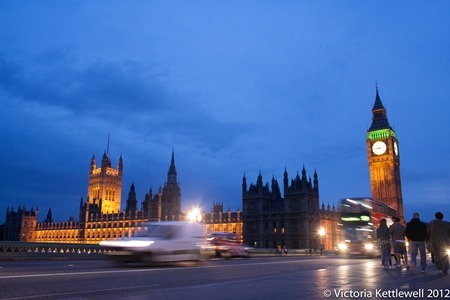The second Prime Minister’s Question Time after the Summer Recess, held on the twelfth anniversary of the terrorist attacks on the World Trade Centers, began with Cameron and Miliband paying tribute to the families and friends of those who died in the attacks. The Tory leader promised to prepare a plan for the Syrian situation in time for the UN General Assembly, with particular focus on ensuring that there is access to the country for humanitarian aid. Cameron and Miliband welcomed figures that overall unemployment levels had fallen, and that private sector jobs had risen to 1.4million. Miliband accused the Tories of ‘total complacency’ with the handling of the deficit, criticising the Government for the slowest recovery in 100 years where prices have risen faster than wages.
Miliband asked the Prime Minister whether he agreed with the Education Secretary, Michael Gove’s, comments that those who used foodbanks ‘only had themselves to blame’. Cameron refused to back or distance himself from these comments, instead retorting with his own criticism on Miliband’s speech at the Trade Union Congress conference yesterday, claiming that it was a ‘disgrace’ that he had caved into trade unions.
There was considerable back and forth between the two major parties on the topic of youth unemployment with Labour attacking the Government for the continual rise of unemployment for the country overall whereas the Tories commended the Government for a fall in unemployment levels in their particular constituencies.
However, Miliband did not bring up today’s report from the UN on the effects of the bedroom tax, suggesting distrust with the accuracy and reliability of the report.
Prime Minister’s Question Times now stop for a few more weeks whilst we turn our attention to party conference season, starting with the Liberal Democrat and Green Party conferences this weekend.
Miliband asked the Prime Minister whether he agreed with the Education Secretary, Michael Gove’s, comments that those who used foodbanks ‘only had themselves to blame’. Cameron refused to back or distance himself from these comments, instead retorting with his own criticism on Miliband’s speech at the Trade Union Congress conference yesterday, claiming that it was a ‘disgrace’ that he had caved into trade unions.
There was considerable back and forth between the two major parties on the topic of youth unemployment with Labour attacking the Government for the continual rise of unemployment for the country overall whereas the Tories commended the Government for a fall in unemployment levels in their particular constituencies.
However, Miliband did not bring up today’s report from the UN on the effects of the bedroom tax, suggesting distrust with the accuracy and reliability of the report.
Prime Minister’s Question Times now stop for a few more weeks whilst we turn our attention to party conference season, starting with the Liberal Democrat and Green Party conferences this weekend.

